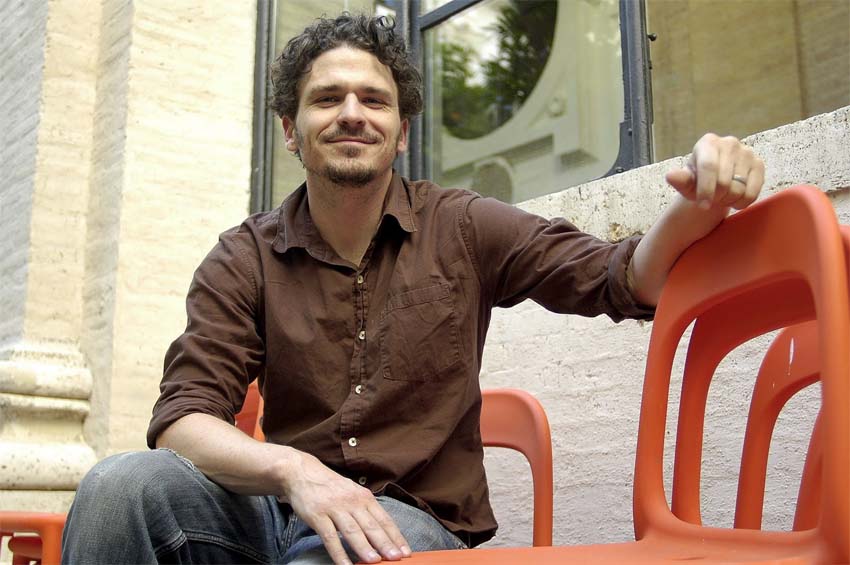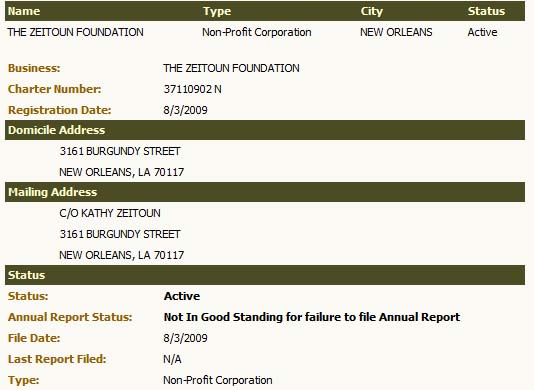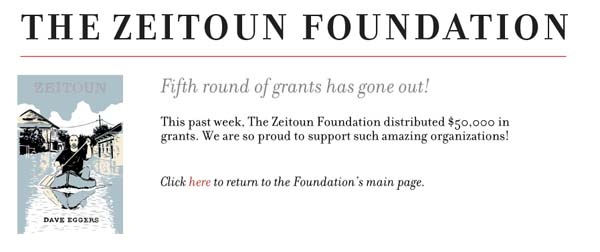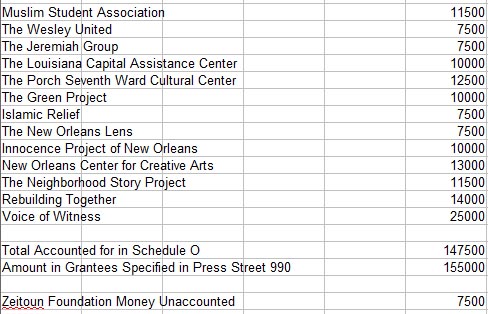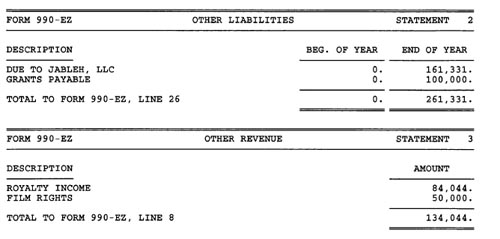I went on vacation to New Orleans — an attempt to celebrate my fiftieth birthday that ended in the worst way imaginable. I was robbed of my phone and my wallet. As I joked later with a congenial neighbor who asked me how my vacation went, New Orleans is somehow more of a den of criminal mayhem than even the roughest parts of Brooklyn, where I once lived when I was homeless. I have never been robbed in my seventeen years of living in New York. By contrast, when I went to the New Orleans Police Department to file a report, the officer there pointed to a thick pile of pamphlets that were on the front desk. Indeed, the only literature that the police had on the high counter in the vestibule was information on what to do after getting fleeced. Such is the admittedly impressive ubiquity of thieves in New Orleans. Shortly after it happened, when I emerged from the Airbnb desperately trying to flag someone with a phone at four in the morning, the only person who would help me was — you guessed it — another poor bastard who had just been rumbled. Given what happened to me and the inherent cruelty that lurks beneath many of those sweet-sounding Southern voices, I do not plan on setting foot in the Big Easy again. It is a hopelessly seductive city, but it is also a dangerous one populated by a sizable contingency of deep-dish long game grifters. Sloppy thugs whose efforts are designed to make you think that they’ve taken everything, but who make a lot of mistakes along the way. (I’m still baffled as to why these unremarkable “high rollers” who blow so much stolen money choose to eat at such a shitty place as McDonald’s rather than a nice restaurant. But I suppose that if you become a criminal, you often do so because you have neither taste nor imagination.) And despite the fact that I stayed largely equanimous throughout all this, the first three days after the robbery have been among the most hellish of my life. Reporting and reclaiming everything without money, credit card, or a phone required a herculean focus and drive, which are qualities that I apparently have. But, hey, on the bright side, I rode a mechanical bull for the first time in my life — the video, of course, captured by one of the two criminals — and I was surprised by how long I was able to hang on. I’m sure there’s a metaphor there for how I handled what transpired soon after.
It is frankly a miracle that I made it back to Brooklyn alive. After I got rolled, I felt humility and gratitude far more than indignation, although I did feel deeply furious once I was safely ensconced in my Brooklyn apartment. And I did end up puking my guts out the morning after I returned. Such was my nausea and anxiety. Part of what helped me stay calm — indeed, so calm that a friend who knows me very well commended me on how well I was handling this nightmare — was writing a fictitious version of what happened to me on my laptop. Writing has always helped me grapple with the unsettling truths and the unshakable pains of existence. And this experience was no exception. It was a miracle that I somehow made it onto the flight back home without an ID and that I was resourceful enough to prove my identity in an indisputable manner. But then I did have the good fortune of being a highly memorable and eccentric fellow who is not easy to forget or impersonate. All that lexical wattage in my noggin that powers the way I speak and write turned out to keep me bright and cheerful at the darkest moments. And for what it’s worth, the TSA officials at Louis Armstrong New Orleans International Airport were incredibly kind and professional and made the process smoother than I ever anticipated. (I cracked jokes to keep the process as stress-free as possible and, deploying wit as a method to stay calm and respectful, I somehow managed to crack up a stern tight-lipped TSA officer who looked as if he had not laughed in years.) In fact, the TSA part was the least of my worries. I had hoped to get back to Brooklyn as fast as possible and make more phone calls and lock as many accounts as I could. I had spent Sunday afternoon holed up in a cafe with a borrowed phone trying to cancel all the cards and report them as stolen. I had walked five miles in scorching Louisiana heat to the nearest official retailer for my cell phone provider to issue a replacement phone. There was very little I could do without my phone or my wallet. But by some miracle of foresight, I did have my laptop on me, on its last legs but an invaluable tool that allowed me to report the criminals to the authorities, contact the banks that didn’t have two-factor authentication (the criminals, of course, had changed all my passwords; I have changed each and every password with a new complex system that rivals a DNA structural chart), and abate a great deal of their avaricious rampage. They were still using one of my credit cards when I was on the phone with the bank, somehow racking up $500 charges at Target and lifting cash from any ATM that would still accept the card.
But I ended up spending twelve hours traveling home due to constant flight delays. And since I only had three dollars in my pocket (leftover from two extremely kind ladies who gave me bus fare to get to the airport), that meant that I wasn’t able to eat much during that time. An incredibly kind woman who worked at the airport gave me a big glass of water. When I asked the people at Delta if I could have a meal voucher given the delay and the fact that I had been fleeced and had nothing, this was denied. They rolled out some snack boxes to “apologize” for the delay to all passengers with a hideously and grimly hilarious corporate slogan on a placard: “Here’s a little something from us.” One of those slogans designed to reframe a colossal fuckup as a “little problem” for which they could provide “a little something” that was completely disproportionate to the wrong. You have to admire savvy marketing people for the way they manipulate our world. It truly takes a stone-cold disposition and an unwavering fealty to capitalism to lie through your teeth like that.
Given the way my stomach was rumbling and how hangry I was (but couldn’t dare express any anger, lest TSA eject me from my hard-won place in line at the airport), I asked if I could have a second box. A woman boomed, “One box for one customer! If we gave you a box, then we’d have to give everybody a box.” Under any other circumstance, I would have agreed with this. But this was hardly a level playing field. Everybody else had access to their phones and money. I didn’t. I watched all the people around me eating and drinking with an increasingly ravenous envy. I had made the mistake of believing that these people who toiled for Delta, often thanklessly, might show a sliver of compassion for a guy who had been robbed. But no. I whispered thank you, returned to my seat at the gate sullen and hungry and very much alone, with only a ragtag laptop with a twitchy display as my means of communicating with people in New York who were looking out for me and trying to work matters on their end. Shortly after observing this colloquy, an extremely kind Canadian bought me a chicken sandwich. And I’m telling you. It was the best fucking chicken sandwich I’ve ever had in my life. I remain a fervent champion of Canadian kindness. That dude did what no other American could do. (I made an effusive effort to get this guy’s name, email, and Instagram. But Canadians are often self-effacing and this very good fellow with the goofy baseball cap and that mellifluous Canadian “Eh?” abjured any effort on my end to recompense. In my case, the kind act provided a much needed salve that allowed me to stay calm for the remainder of my long journey home. I ended up reading 100 pages of a thick book about the Holocaust on the plane home. It seemed appropriate. Even in despair, I enrich myself, often with dollops of irony.)
And because I am still alive, I greatly count my blessings. Because it could have been so much worse. There was a point in which the two assailants, whom I stupidly and optimistically invited into the AirBNB that I was staying at and whom I should have sized up but somehow didn’t (even the smartest men can be easily fooled by the ribald flaunting of the feminine form), looked into a spare capacious closet. And I now understand with a certain chill in my spine that this was likely their backup plan: to bludgeon me if I discovered that they had pilfered my phone and wallet. The assailants were two women and, yes, they kept me distracted in ways I don’t feel comfortable sharing publicly, but that any man who is attracted to women is fully aware of. And that’s the truly shameful thing. Despite my theatrical presence and my boisterous writing style, I’m actually a quiet, peaceful, deeply mindful, and sensitive man, particularly when it comes to the ladies. Anyone who has dated me knows this. But of course they kept plying me with liquor, sizing up how much I was spending on everybody so that they would know if I was a dependable roll. And because I have significantly cut down on my drinking in recent years, it went straight to my head. By the time they had stolen everything off my back, except for my NYPL and BPL library cards, which they ignominiously tossed onto the floor under a towel in the living room — the final fuck you from two illiterate and ultimately undistinguished thugs — I was too incapacitated to do anything about it.
I decided to sleep it off, figuring that what I had experienced — which was something between Wild Things and Spring Breakers — had been some ridiculous nightmare that I had fantasized. But, no, I woke up sometime in the afternoon and realized that this was very fucking real. And that’s when I headed to a cafe with my laptop, where two incredibly kind young ladies gave me busfare and a cup of water, allowed me to borrow their phone, and let me set there for many hours to undo as much damage as I could.
I have managed to secure my online presence. I am who I say I am on Mastodon, YouTube, and Instagram. And even though the criminals changed the passwords on my two TikTok accounts (as well as the Gmail accounts that I had set up), I got those back too. That’s how thorough they were, although they weren’t nearly as thorough as they thought. My hope is to get back to my daily creative routine of writing five fresh new pages every day for my audio drama and performing TikTok ablutions in between all the feverish logging of all the funny characters chattering in my head. I’m nearly back to normal. But it wasn’t easy to get here. Because without a phone, you are essentially fucked in 2024. While I was awaiting the delivery of my replacement phone, the criminals still managed to rack up charges on one of my cards long after I had reported it stolen. It turns out that two-factor authentication, which is intended to “secure” us, is the very thing that allows all this criminal theft to flourish. The criminals didn’t find everything, although it angers me that they had access to so much of my personal information.
And while my spirits remain intact, I can’t gainsay that there wasn’t a little emotional damage. I am now reticent to go on vacation or to date and will probably not be doing any of those things for a good long goddamned while. While I have been humbled by the kindness of many strangers, I’m not so sure how much I can trust people right now. Although one of my dear friends picked me up at La Guardia with a gyro, a pack of cigarettes (yes, I’ve quit for long periods this year, but cut me some slack given the circumstances; I will get off these evil addictive sticks again) and beverages and she gave me a big smile and a hug. And I cried with great joy as I hugged her. I was so happy to be back in New York. I was so happy to see my dear friend. The other thing I have had to combat is certain obsessive enemies of mine who delighted in my misfortune and who sent me very cruel messages in which they rubbed it in. Which I would never send to my worst enemy. Additionally, the silence of certain “friends” in relation to this incident speaks volumes about how little they actually care for me. And I’m now going to significantly raise my standards on who I let into my life. I am such a loyal friend that, had the roles been reversed, I would have done what my dear friend did at La Guardia: offered the shirt off my back and served up a nonstop soiree of jokes as a reminder for why life is so beautiful.
The biggest horror I feel is having to reconcile my natural optimism and exuberance with a deeply unsettling takeaway that the world is far crueler than I’ve understood it to be. I really don’t want to transform into a cynic. A bleak-humored grump at times, sure, but not a cynic. But as someone who has historically had trust issues, well, this terrible incident has only exacerbated a feeling I don’t want to hold that you can’t really trust anyone. The one thing that prevents me from sliding into antisocial nihilism is knowing that these criminals have nothing but terror, rampant consumerism, bloodthirsty lucre, and the thrill of betrayal to offer the world. These criminals are vacuous shells: little more than empty-headed, unfeeling, and dishonorable fuckheads. And I know karma and the law will get them in the end. Because I am far more than they are or ever could be. I make. I create. I give. I live. I love. I write. I have my art and my wit and my lexical ninja moves and my audio chops. At fifty, my eyes still dance with endless felicity and limitless curiosity. And I’m strong enough now that nobody can break that. Not fascists. Not thieves. Not talentless assholes in the literary and tech worlds who have openly lied about me, spread false rumors, and created an image of me that fewer people believe these days. These assholes will never have any of that. Talent and commitment and creative drive cannot be stolen or bought. Being a kind and decent person has no cash value. If anything, being so thoroughly robbed like this has only redoubled my commitment to being kind and giving. So I’m out a few hundred dollars for the phone. Big deal. The life I live is eminently more richer and a lot more fun than that of a predictable thug. You can’t place a cash value on being sui generis, which, if you’ll allow me a modest flex of my ego, I certainly am. And they’ll never have that. That was evident in the melancholy look that one of the two women gave me when I asked her what her passions were. She had nothing. Zilch. Just a beady rapacious look that reminded me of the way that Dr. Sam Loomis described Michael Myers. She had nothing other than hurting other people even as she pretended that she was looking after them. Not unlike Annie Wilkes, Stephen King’s frighteningly memorable creation. And if you practice that level of deceit and dishonesty, well then your world is very small indeed. The two women thought I hadn’t seen what they did before. But I’ve been around the block. And I’ve seen their “performance” executed before with love and ardent passion and inclusion. You can’t be a truly free spirit if you don’t have those vital human qualities.
I am a cathedral built from robust alabaster and designed by an extremely quirky architect. These criminals are nothing more than ramshackle hovels easily blown over by a modest gust. Sure, I may have lost my phone and wallet. But these were easily replaceable: mere mechanisms to negotiate our world. But, for the criminal, there’s nothing else beyond thieving and ennui between jobs. That’s all the criminal understands. And when the two women who rolled me turn fifty, if they’re not in prison by then, then the void of their vapid lives will catch up to them and they’ll have nothing when they get to be my age. Sure, I made a huge mistake. But at the end of the day, they could not break me. The beauty of existence is learning how to grow with humility and wonder and grace, even when the worst thing happens to you. It’s a process that never stops. And if you’re doing life right, then you may just summon a few unexpected catches from the rough and tumble curveballs that the universe throws at you. And that’s when you give back. So others can thrive with the same fearless and indefatigable gusto. So that all of us can be here for each other in the best way possible.


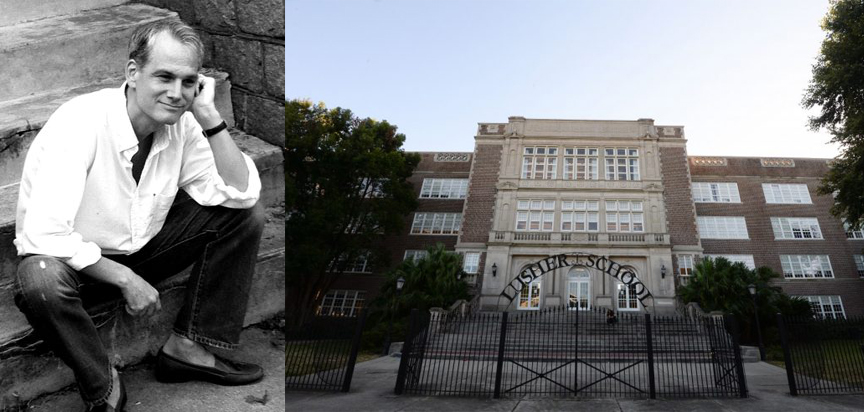
 The girls were too young to understand this volatility. But they never questioned the teacher. They didn’t want to be summoned into the halls during the middle of class, where the teacher would move in close, close enough for an embrace, and lecture them about their outbursts or rebuke them for interrupting. Besides, they were smitten by him. The teacher wanted the girls to be smitten by them. Much as eighth-grade girls are often smitten by teachers. Given the pattern established by these allegations, it would appear that this was always the teacher’s plan. He told them that he had given up a writing career to teach them. He told them that teaching was his calling. His duty. He told him that this was the most important thing in his life and they were lucky to be part of it. The girls. And the boys, whom he was much harder on. But mostly the girls. Particularly the vulnerable ones.
The girls were too young to understand this volatility. But they never questioned the teacher. They didn’t want to be summoned into the halls during the middle of class, where the teacher would move in close, close enough for an embrace, and lecture them about their outbursts or rebuke them for interrupting. Besides, they were smitten by him. The teacher wanted the girls to be smitten by them. Much as eighth-grade girls are often smitten by teachers. Given the pattern established by these allegations, it would appear that this was always the teacher’s plan. He told them that he had given up a writing career to teach them. He told them that teaching was his calling. His duty. He told him that this was the most important thing in his life and they were lucky to be part of it. The girls. And the boys, whom he was much harder on. But mostly the girls. Particularly the vulnerable ones.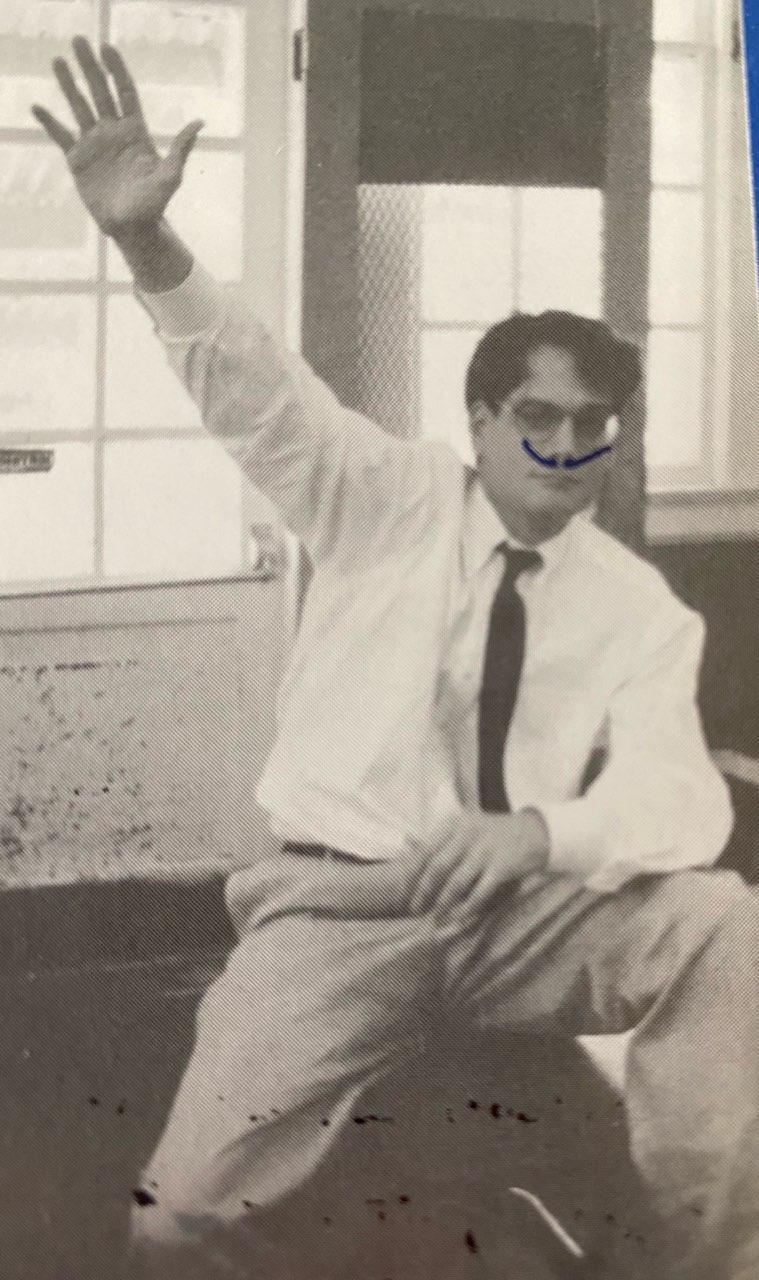 This was life at Lusher in the 1990s, if you were assigned the highly coveted English literature class taught by Blake Bailey, now a successful literary biographer with a bestseller on Philip Roth riding high on the New York Times bestseller list. Lusher was a top-ranked middle school that welcomed the wealthy and gifted kids of New Orleans, as well as other children from nearby neighborhoods. It was converted from a former courthouse. The school earned high marks for its emphasis on the arts. Typically, if you grew up in that area, you would start off at Edward Hynes (close to the City Park), make your way onto Lusher, and then finalize your primary education at Benjamin Franklin High School. Bailey taught at Lusher for a good ten years, winning the Louisiana Endowment for the Humanities Teacher of the Year Award during his final year in 2000. Accounts vary as to what factors caused him to leave after this triumph. The school itself has been less than forthcoming in my efforts to obtain answers. Some insiders believe that he was strongly urged to resign and serve a final year. Some believe he ran away with a former student, although my thorough investigative efforts reveal that this isn’t true. But if you do the math and you add six years to twelve, you can probably draw a few conclusions over what may have transpired near the end of Bailey’s run. New Orleans is one of those “small town” big cities, where people talk and stories circulate and the pain and grief caused by a teacher who was wildly inappropriate with his students could only carry on for so long before it caught up with these girls in adulthood. The girls who went to Lusher have been talking with each other for decades and living with their pain, trying to make sense of what happened while sometimes contending with the great fear of speaking out, trying to understand how they could have been so easily manipulated. They were still starstruck with Bailey in college. And Bailey would stay in touch and meet them and betray their trust by being wantonly flirtatious. Some of the former students allege that they went up to the hotel room with him. Some allege that this was consensual. Some have carried their secrets for far too long and some have had rough lives afterward. Until now, their stories have been largely contained by the many beautiful lakes that surround the Big Easy.
This was life at Lusher in the 1990s, if you were assigned the highly coveted English literature class taught by Blake Bailey, now a successful literary biographer with a bestseller on Philip Roth riding high on the New York Times bestseller list. Lusher was a top-ranked middle school that welcomed the wealthy and gifted kids of New Orleans, as well as other children from nearby neighborhoods. It was converted from a former courthouse. The school earned high marks for its emphasis on the arts. Typically, if you grew up in that area, you would start off at Edward Hynes (close to the City Park), make your way onto Lusher, and then finalize your primary education at Benjamin Franklin High School. Bailey taught at Lusher for a good ten years, winning the Louisiana Endowment for the Humanities Teacher of the Year Award during his final year in 2000. Accounts vary as to what factors caused him to leave after this triumph. The school itself has been less than forthcoming in my efforts to obtain answers. Some insiders believe that he was strongly urged to resign and serve a final year. Some believe he ran away with a former student, although my thorough investigative efforts reveal that this isn’t true. But if you do the math and you add six years to twelve, you can probably draw a few conclusions over what may have transpired near the end of Bailey’s run. New Orleans is one of those “small town” big cities, where people talk and stories circulate and the pain and grief caused by a teacher who was wildly inappropriate with his students could only carry on for so long before it caught up with these girls in adulthood. The girls who went to Lusher have been talking with each other for decades and living with their pain, trying to make sense of what happened while sometimes contending with the great fear of speaking out, trying to understand how they could have been so easily manipulated. They were still starstruck with Bailey in college. And Bailey would stay in touch and meet them and betray their trust by being wantonly flirtatious. Some of the former students allege that they went up to the hotel room with him. Some allege that this was consensual. Some have carried their secrets for far too long and some have had rough lives afterward. Until now, their stories have been largely contained by the many beautiful lakes that surround the Big Easy. 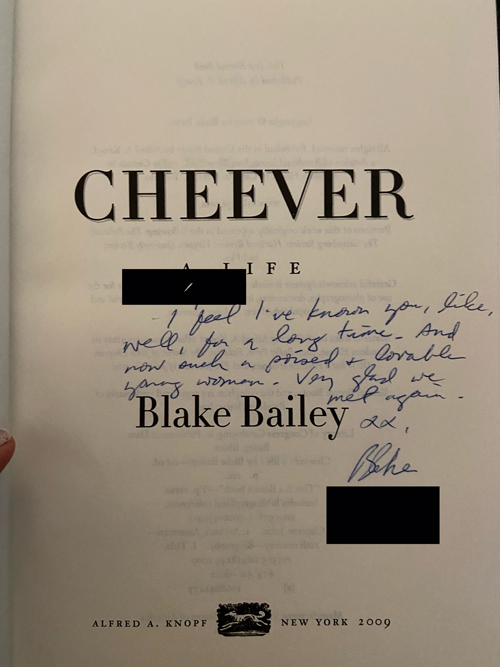 He would keep tabs on girls who had grown up, noting what cities they were in and contacting them whenever he rolled through town. During a 2009 promotional appearance for his John Cheever biography on the West Coast (the city has been elided to protect the alleged victim, but the incident has been corroborated by multiple individuals), he invited one of his former students to bring her sister along. He took the two young women to dinner after the reading. “I wasn’t initially hesitant,” alleged this sister, “but as the evening wore on, I could tell Bailey was fixated on us. He watched us the entire time he was doing the reading.” When the former student left the table to go to the restroom, Bailey allegedly revealed to this sister all of the inappropriate thoughts he had about her when she was thirteen, in the days when she would pick up her sister or her friend from school. “Do you know how hard it was to resist you back then?” said Bailey, as alleged by the sister. “The things we wrote and how you looked?” Then, Bailey invited the two sisters to return to his hotel room because “it had an amazing library.” The two sisters knew that they had to stick together. They didn’t want Bailey to make any moves.
He would keep tabs on girls who had grown up, noting what cities they were in and contacting them whenever he rolled through town. During a 2009 promotional appearance for his John Cheever biography on the West Coast (the city has been elided to protect the alleged victim, but the incident has been corroborated by multiple individuals), he invited one of his former students to bring her sister along. He took the two young women to dinner after the reading. “I wasn’t initially hesitant,” alleged this sister, “but as the evening wore on, I could tell Bailey was fixated on us. He watched us the entire time he was doing the reading.” When the former student left the table to go to the restroom, Bailey allegedly revealed to this sister all of the inappropriate thoughts he had about her when she was thirteen, in the days when she would pick up her sister or her friend from school. “Do you know how hard it was to resist you back then?” said Bailey, as alleged by the sister. “The things we wrote and how you looked?” Then, Bailey invited the two sisters to return to his hotel room because “it had an amazing library.” The two sisters knew that they had to stick together. They didn’t want Bailey to make any moves. Bailey would wait years for his former students to grow up. Then, as several of his students have alleged, he would invite them for drinks and ply them with liquor and get handsy, often blaming these wild flirtations on drunken behavior. But in the case of his former students, because all of his alleged victims were over the age of eighteen, if they wanted to go up to his hotel room, it was all perfectly legal. That’s what Bailey would tell anyone who was creeped out by his behavior. It is indeed what Bailey has emailed a number of people, including me, in the last few days. As Bailey emailed me on Friday night, “It is untrue that I EVER committed an illegal sexual act, regardless of what comes out of the woodwork to say so.”
Bailey would wait years for his former students to grow up. Then, as several of his students have alleged, he would invite them for drinks and ply them with liquor and get handsy, often blaming these wild flirtations on drunken behavior. But in the case of his former students, because all of his alleged victims were over the age of eighteen, if they wanted to go up to his hotel room, it was all perfectly legal. That’s what Bailey would tell anyone who was creeped out by his behavior. It is indeed what Bailey has emailed a number of people, including me, in the last few days. As Bailey emailed me on Friday night, “It is untrue that I EVER committed an illegal sexual act, regardless of what comes out of the woodwork to say so.” 